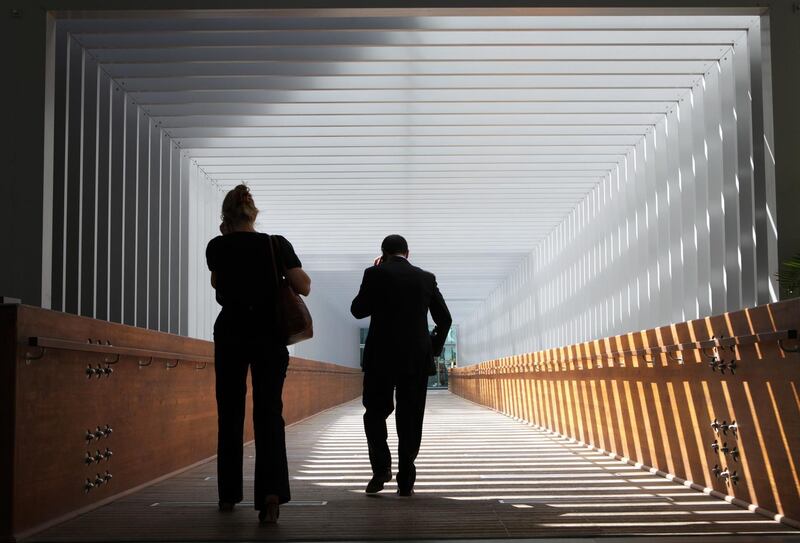The UAE has ranked the highest for gender equality in the GCC, with a growing female workforce and more women continuing higher education than men.
The Human Development Report 2018, compiled by United Arab Emirates University in collaboration with United Nations Development Programme, is the first of its kind since 1997, although more localised reports have been produced.
It uses factors such as its labour force and education as indicators of a country’s development and the standard of living for its citizens and residents, as opposed to the more typical gross domestic product.
The report highlights that this development is difficult without furthering the rights of women, but in many places in the world they still face fewer opportunities on the job market, gender discrimination, social restrictions or restrictions imposed by family and weak participation in political life.
The average woman in the UAE workplace was found to be better educated than the average man, with 43 per cent of working women holding a bachelor’s degree compared to 23 per cent of men.
More women had also completed post-secondary school education.
This is seen by the report authors as a positive indicator for the future of gender equality and human development in the country.
The UAE’s launch of a Gender Balance Council in 2017 played a significant role in furthering the role of Emirati women in society, but there had already been a significant improvement in female participation over the course of the country’s history.
_______________
More from UAE Human Development Report:
More working women but unemployment rate among Emiratis has risen since 1975, report reveals
UAE schools should encourage 'creation and innovation' over curriculums
Life in the UAE among the best in the world, according to the latest human development report
_______________
In 1975, around 1,000 of Emirati women were participating in the labour market, but in 2015 that number had increased to 135,000 — an increase of 135 times in forty years. In comparison, Emirati men have seen a five-fold increase from 44,000 to 207,000.
And from non-citizens, female participation has increased 88 times, from 10,000 to 882,000. The number of men employed has grown in that time from 284,000 to more than 5.5 million — a 20 times increase.
They were also found to be older than the average man, with the largest group of women being in the 30 to 34 age group compared to the largest for men being 25 to 29.
Improvements in female employment means the number of men for every woman in the labour market has decreased from 29 to six, and in citizens that ratio has decreased from more than 40 to 1.5. But for every woman in a technical or vocational job, there are still four men.
With women representing half of human capital, encouraging their participation in the workplace will also grow the size of the national economy meaning it has positive implications for the country as a whole.
The report measures the reduction of inequality via the Gender Inequality Index, which, as well as female participation in the labour market, looks at reproductive health (maternal mortality rates and adolescent fertility rate) and empowerment (female participation in parliament and education).
With zero meaning full equality and one representing the highest possible level of inequality, the UAE scored 0.232, a significant drop over the past ten years, ranking it 46 out of 188 countries and the highest in the GCC, followed by Bahrain at 48 and Saudi Arabia at 50.
The UAE scored highly in reproductive health, with a maternal mortality rate roughly equal with developed countries like Norway, and women’s representation in the workplace is among the highest in the Gulf.
The report said: “The UAE attained remarkable achievement and progress in the empowerment of Emirati women, narrowing the gender inequality gap compared to its regional and global scale … with a great development in women’s education at rates that exceeded those of men. The ratio of woman’s representation in labour market is still below aspirations, especially in the field of vocational and technical jobs, as well as the legislative and higher administration positions.”
Women’s presence in legislative and administration positions is important, said the report, to help further women’s visibility in politics and give them a voice with regards to the economy and financial decisions: however, the UAE had one woman to every man in these positions, ranking fourth in the GCC.
According to the report, the UAE is ranked 67 in the world and 1 in the Gulf for overall female political empowerment.
The UAE, which has seen huge developmental change in the last few decades, seeks to achieve further development in accordance with its 2021 vision.







